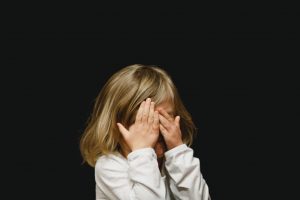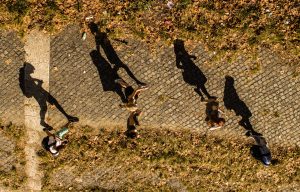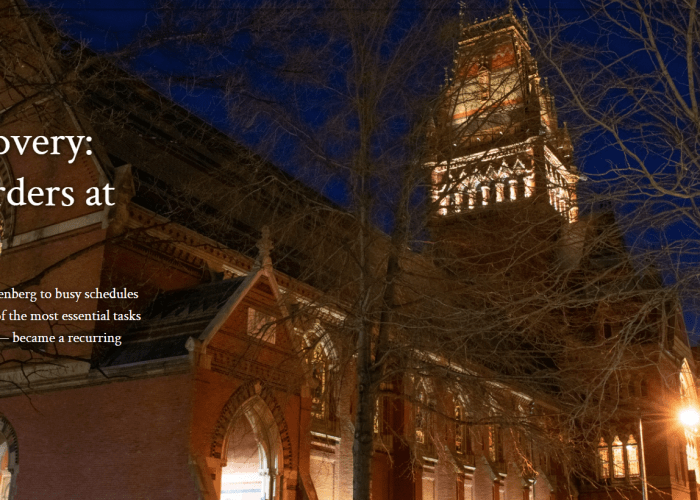September 24, 2017
By Caroline Adams Miller, MAPP
An excerpt from Getting Grit – “When Grit is Gone”
A recent article in the Washington Post noted that Facebook feeds are currently filled with posts of teary parents dropping off their children at college, but that the reality is that many of them won’t stay long enough for homesickness to set in. Studies are showing that the first year isn’t always good, with many leaving to drop out or transfer, often because they aren’t prepared to work hard, engage with learning, or pursue anything with passion. As the article says, students wait for college to “happen to them,” expect professors to engage them without much effort, and sit on the sidelines as observers. Is it any wonder that some colleges are teaching “adulting” and how to bounce back from failure?
Although the parents of Millennials have come under intense scrutiny for raising “snowflakes” (beautiful and unique children that melt in the heat) and “teacups” (fragile and easily broken people), they certainly aren’t the first to have lapses in parental judgment based on the popular “scientific” advice of the time. The Millennial generation does stand out, however, for being raised to see themselves as people who need to be saved from a scary world. This starts when they come home from the hospital to baby-proofed houses replete with outlet covers, cabinet locks, childproof lids, and door gates. They are chauffeured in cushioned splendor in cars and strollers, and everything they sit or lie on has to meet safety specifications. If they get to a playground—which may not happen because most children rarely venture far from their homes or yards, where vigilant parents and nannies stand guard—they are treated to more rounded plastic that does no harm, plus seatbelts on every swing.
We love our kids and are concerned about injury—and bad things can and do happen—but with that concern and our children’s environments becoming “safer,” we’ve overlooked the reality that developing grit involves learning how to take risks and even being exposed to unwanted illnesses and setbacks.
Too many Generation Xers and Millennials haven’t benefitted from these hard knocks in the ways that previous generations did. They have gradually had familiar childhood games like tag and dodgeball, and activities like sledding, banned in their schools and communities because of the “danger” they present. Fewer are learning how to drive stick-shift cars or to parallel park because self-driving cars are removing the need to become competent at anything more difficult than steering a golf cart. And when they do go out, they are armed with cell phones that tell them where to go and how to get there. The phones can also send their every move back home to the computers of these helicopter parents.
 Some parents’ desire to protect their children from harm has gone from covering outlets to covering the eyes and ears of their preteens and teens so that they don’t hear or see anything that might upset them. This includes seeing real report cards, which one New York yeshiva for elementary school children suggested should only be done with “great discretion” because of the potential trauma that could occur if a child were to learn about critical comments or a bad grade. If the parents fear this outcome, the school offers to print a fake report card so that the child won’t feel bad.
Some parents’ desire to protect their children from harm has gone from covering outlets to covering the eyes and ears of their preteens and teens so that they don’t hear or see anything that might upset them. This includes seeing real report cards, which one New York yeshiva for elementary school children suggested should only be done with “great discretion” because of the potential trauma that could occur if a child were to learn about critical comments or a bad grade. If the parents fear this outcome, the school offers to print a fake report card so that the child won’t feel bad.
Not only are real grades deemed too hard for some to take in, many elementary, middle, and high schools have acquiesced to a torrent of parental requests to ban books and topics they deem inappropriate for their children, including the Adventures of Huckleberry Finn and Harry Potter and the Sorcerer’s Stone. These intellectually fragile teens then go to college, and if they feel “triggered” by a discussion that hurts their feelings, they lodge complaints against vulnerable professors and even fellow students about a so-called “microaggression,”which results in black marks on students’ records and busted careers among the professors who say their students “terrify” them.
Speakers invited to universities are also being scuttled to avoid offending the sensibilities of those men and women who report feeling “unsafe” if a discussion or debate occurs anywhere within their vicinity. In fact, the month of May is now called “the season of disinvitation” because so many commencement speakers (fifty-three in the last fifteen years) have been uninvited because of “comfort” issues. The uninvited include presidential historian Doris Kearns Goodwin, International Monetary Fund president Christine Lagarde, former U.S. Secretary of State Condoleezza Rice, and former U.S. Presidents George W. Bush and Barack Obama.
One of the tributes paid to Supreme Court Justice Antonin Scalia when he passed away was that he always selected at least one law clerk who disagreed with him and would present opposing arguments for him to consider when writing his judicial opinions. A cardinal sin of insecure leaders is that they surround themselves with yes-men, while self-confident, successful people like Scalia make sure they always hear differing points of view so that their final judgments are informed by as many facts as possible.
If we are raising new generations to be incapable of hearing anything they don’t already know and agree with, then we are ensuring that they will lack the confidence and humility to seek out data that will help them get better at whatever they want to do, which is a necessary component of grit.
 There are so many stories about the out-of-control victimhood problem on campuses—alongside an alarming epidemic of crippling anxiety and depression—that it’s hard to pick which ones best illustrate how this phenomenon has undermined the cultivation of grit to such a large extent. Here are just a few that typify what is happening and that should give us all a disturbing lens into how our society increasingly discourages young adults from becoming emotionally resilient and able to learn from others who have dissenting viewpoints, while becoming more focused on their own feelings to the exclusion of others’.
There are so many stories about the out-of-control victimhood problem on campuses—alongside an alarming epidemic of crippling anxiety and depression—that it’s hard to pick which ones best illustrate how this phenomenon has undermined the cultivation of grit to such a large extent. Here are just a few that typify what is happening and that should give us all a disturbing lens into how our society increasingly discourages young adults from becoming emotionally resilient and able to learn from others who have dissenting viewpoints, while becoming more focused on their own feelings to the exclusion of others’.
Several years ago, Brown University hosted a debate on the rape culture on campus, which led some students to protest that having two different viewpoints anywhere near them would cause them trauma. Brown’s administration responded to the protesters by creating a “safe space” where students could come to feel protected from the dangerous conversations taking place within a mile of them. The New York Times wrote about this in an op-ed piece called “In College and Hiding from Scary Ideas,” which noted that Brown’s safe space that night hosted dozens of aggrieved students, who arrived to find a room with soft lighting, coloring books, chocolate-chip cookies, and video loops of frolicking puppies. Not every university takes the same timid approach as Brown with students who complain about feeling unsafe. In 2015, Oklahoma Wesleyan University president Everett Piper fired off an open letter to the entire school. He had given a Sunday-morning homily about love, and was approached afterward by an angry student who said that he and his peers deserved an apology because they had felt uncomfortable during the sermon. Why? They felt that if they didn’t show love in the same way Dr. Piper’s sermon suggested, it was a criticism of them. Instead of apologizing, Piper’s public, pointed letter to faculty and students pushed back with his own criticisms of the pervasive culture of victimhood.
He wrote: “Our culture has actually taught our kids to be this self-absorbed and narcissistic! Any time their feelings are hurt, they are the victims! Anyone who dares challenge them, and thus makes them ‘feel bad’ about themselves, is a ‘hater,’ a ‘bigot,’ an ‘oppressor,’ and a ‘victimizer.’’’ Piper ended with, “Oklahoma Wesleyan is not a ‘safe place,’ but rather a place to learn: to learn that life isn’t about you, but about others; that the bad feeling you have while listening to a sermon is called guilt; that the way to address it is to repent of everything that’s wrong with you rather than blame others for everything that’s wrong with them. This is a place where you will quickly learn that you need to grow up! This is not a day care. This is a university!”
Some alums are expressing their concerns about how their schools are conceding to such student demands by refusing to donate, saying it is “the only lever that can make a difference.” Robert Longsworth, class of ’99 at Amherst College and the seventh in his family to have attended the institution, told a reporter that he resigned as a class agent and president of the New York City alumni organization because of campus protests about removing the school’s mascot and other issues, saying that Amherst was “so wrapped up in this politically charged mission rather than staying in its lane and being an institution of higher education.”
If we are raising new generations to be incapable of hearing anything they don’t already know and agree with, then we are ensuring that they will lack the confidence and humility to seek out data that will help them get better at whatever they want to do, which is a necessary component of grit.
Other universities are drawing a line before new students even set foot on campus. In September 2016, the University of Chicago’s college dean of students issued a welcome letter to freshmen that declared the university to be a space safe from safe spaces: “Our commitment to academic freedom means that we do not support so-called trigger warnings, we do not cancel invited speakers because their topics might prove controversial, and we do not condone the creation of intellectual ‘safe spaces’ where individuals can retreat from ideas and perspectives at odds with their own . . . Diversity of opinion and background are a fundamental strength of our community. The members of our community must have the freedom to espouse and explore a wide range of ideas.”
We need more adults and institutions to hold the line in similar ways when challenged by youth who aren’t fighting for a meaningful cause, but who are instead fighting to avoid hearing anything that pricks their conscience or causes them to think in intellectually critical ways. If we allow young people to wallow in self-absorption and woundedness, how will they ever get grit?
This is an excerpt from Caroline Adams Miller’s book Getting Grit.
Click here to download the introduction and first chapter of Getting Grit.
Photo credits (in order of appearance): Mi PHAM, Caleb Woods, inbal marilli on Unsplash




